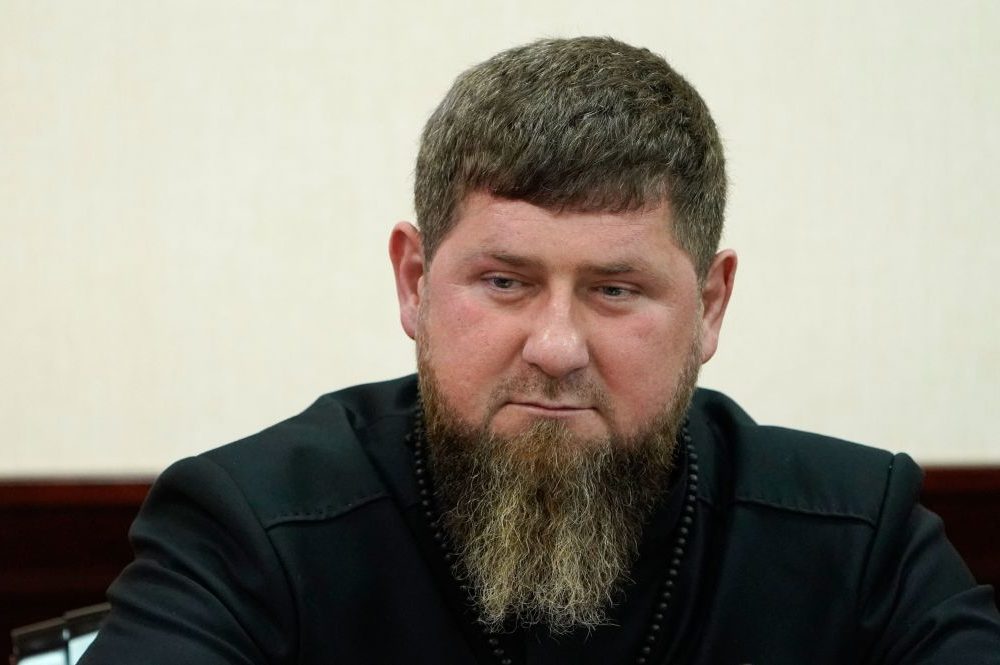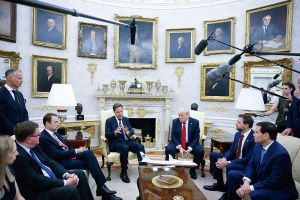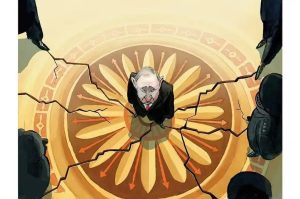Is Ramzan Kadyrov dying? The independent Russian-language publication Novaya Gazeta recently published an investigation in which it claimed Kadyrov was terminally ill, suffering from pancreatic necrosis. Putin’s ally, it claimed, may not have long to live and it cited a long list of evidence to back up its claim.
Throughout his rule, Kadyrov and his cronies have committed many crimes to shore up their power, and have enjoyed the Kremlin’s protection throughout. But even Putin’s patronage cannot protect Kadyrov from his own mortality.
Kadyrov appears to be doing his best to ensure that his family is well placed after his death
The Chechen ruler’s health, judging just from his appearance, is clearly failing. Recent videos published by Kadyrov on his social media show that he has the same swollen face and same labored breathing as last summer, shortly before he was said to have been hospitalized in a central Moscow clinic for treatment.
Kadyrov’s latest political reshuffles in the republic also suggest that the man who has ruled Chechnya with an iron first since 2007 might be getting ready to depart for a better world. He appears to be doing his best to ensure that after he dies, his family is well placed among the future elite of the republic. Following his stay in hospital last year, Kadyrov promoted his eldest daughter Aishat (twenty-five years old) to the position of the republic’s vice prime minister and his eighteen-year-old son Akhmat to minister for youth affairs. Meanwhile, his fifteen-year-old son Adam has become his head of personal security. Kadyrov himself started his ascent to power from that role almost thirty years ago when he served as his late father Akhmad’s bodyguard.
Reports of Kadyrov’s ailing health echo rumors that have been circulating in Chechnya for some time. Even though Chechens can’t openly discuss Kadyrov’s imminent death, it is a subject that is bubbling away below the surface. Many are guessing who might replace him and what that would mean for them. Prospective candidates in the running to succeed Kadyrov include the Duma MP Adam Delimkhanov, Chechen parliamentary chair Magomed Daudov and the commander of Kadyrov’s “Akhmat” special forces in Ukraine Apti Alaudinov. All are members of Kadyrov’s inner circle and are no less dictatorial than he is.
However, this guessing game of trying to predict who will succeed to Kadyrov’s throne misses the point. It deflects attention from the real question at the forefront of Russia’s mind: whether the Kremlin’s new man in the role will be able to keep Chechnya calm.
Those familiar with the recent history of this small republic in the North Caucasus know that the Chechens were the first victims of the resurgent Russian imperialism evident today. The republic declared its independence in 1991, and it took Russia two wars and almost twenty years to force it back into the federation. The Kadyrovs, first father and then son, played a crucial role in this process. They suppressed the resistance, fought against their former comrades, and helped Putin to present the wars on the international stage as counter-terrorist operations.
Both Kadyrovs worked hard to make a sultanate out of Chechnya, a land whose people have historically always been proud of their non-hierarchical societal structure. Ramzan Kadyrov, who inherited the republic shortly after his father was killed in 2004, was so successful in this that the extent of his power in the republic has even triggered concern amongst many in Russia.
The power structure Kadyrov junior created in Chechnya is eerily reminiscent of the hierarchy carefully constructed by Putin in Russia. This presents the Russian authorities with their main concern: can this power vertical endure without its core? To ensure it does, the “Faustian bargain” struck between Kadyrov and Putin — unlimited power in the republic in exchange for keeping Chechens obedient — will need to be signed again with his successor. The last thing Russia needs in the middle of the war with Ukraine is a second front in the North Caucasus. But this doesn’t pose a big problem to Putin as might seem the case: there is a long line of “Kadyrovs” who are ready to take this deal and capable of continuing in the same vein.
Granting the new ruler unlimited power to terrorize and suppress the Chechen population — as the Kremlin will certainly do gladly — means that Kadyrov’s death will not change anything in the republic. Any hope of change coming to Chechnya, or indeed other regions of Russia, depends on more than the removal or death of Kadyrov, others like him — or even Putin himself. What is really needed is the removal of the imperial mindset that the Russian authorities and liberals alike suffer from, and which finally became obvious to the world with the invasion of Ukraine two years ago. Only once this is exorcised, will Chechnya and Russia be free.
This article was originally published on The Spectator’s UK website.


























Leave a Reply